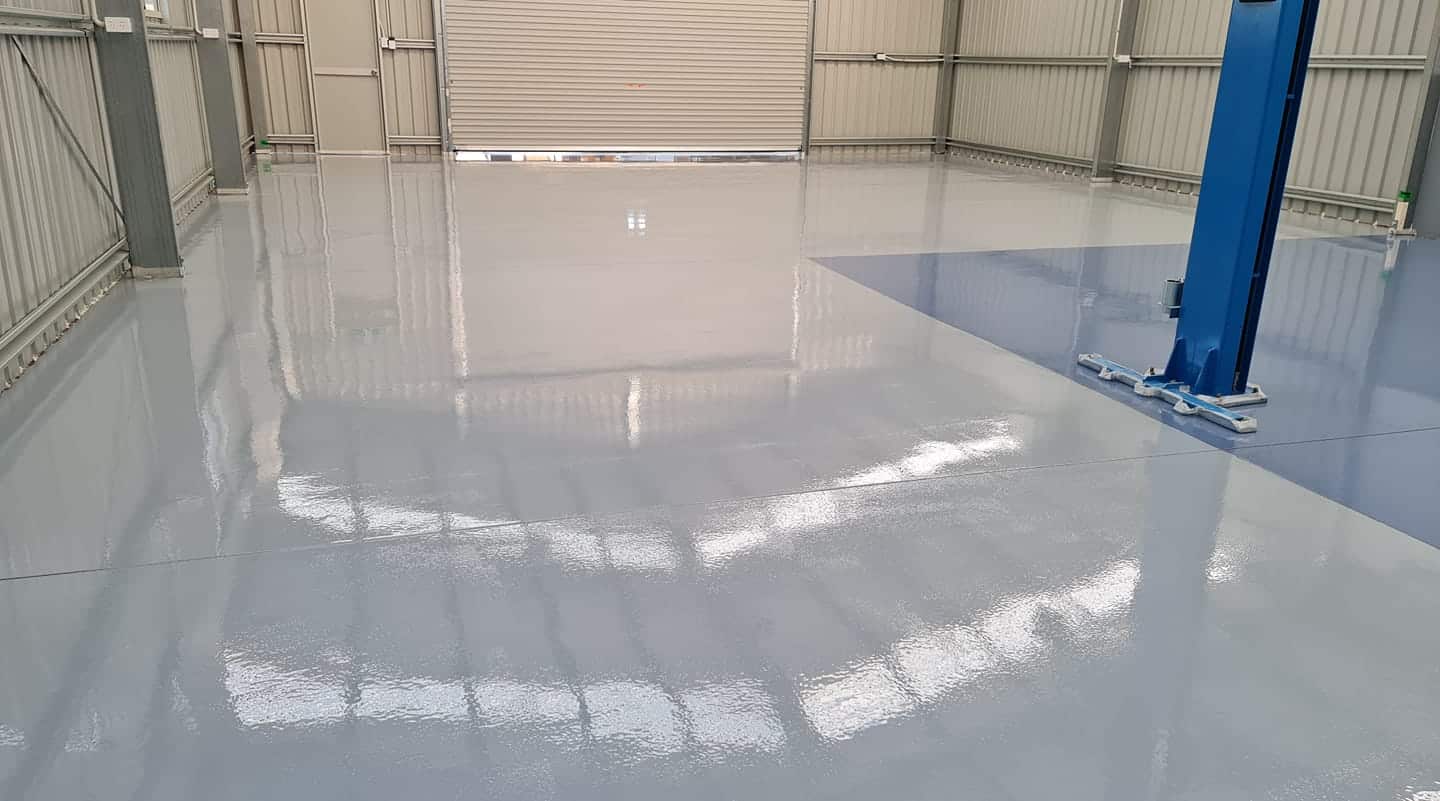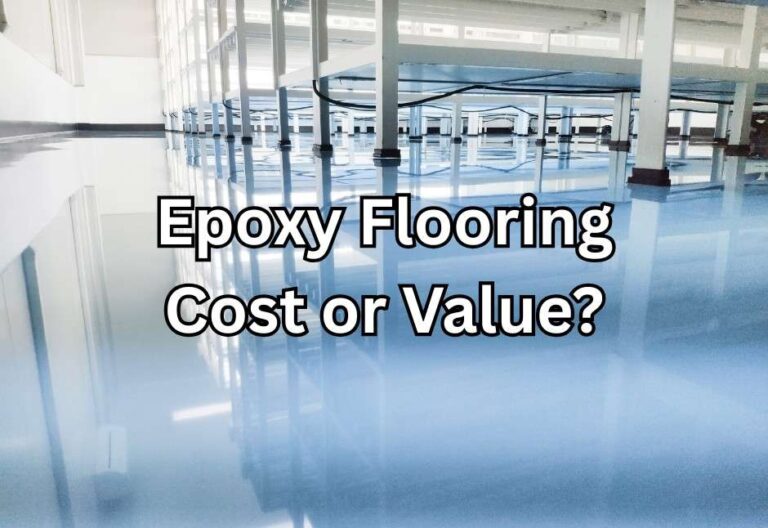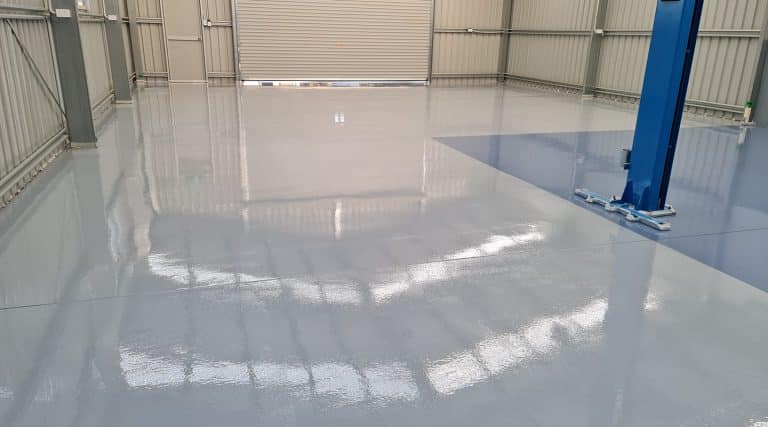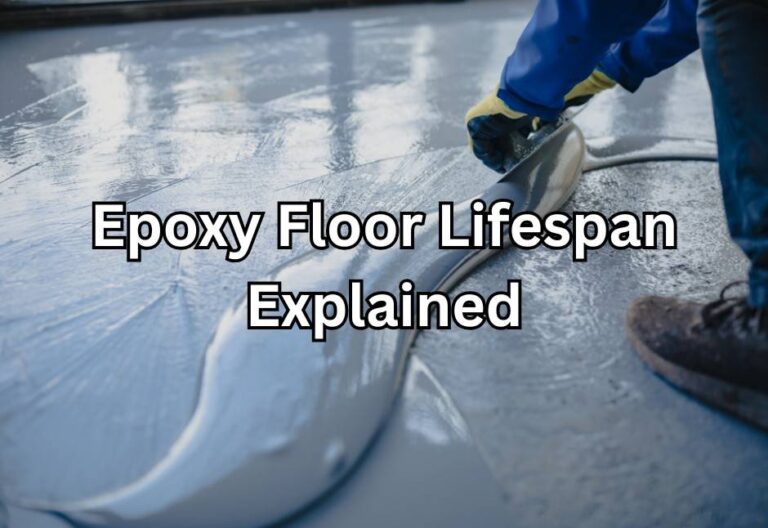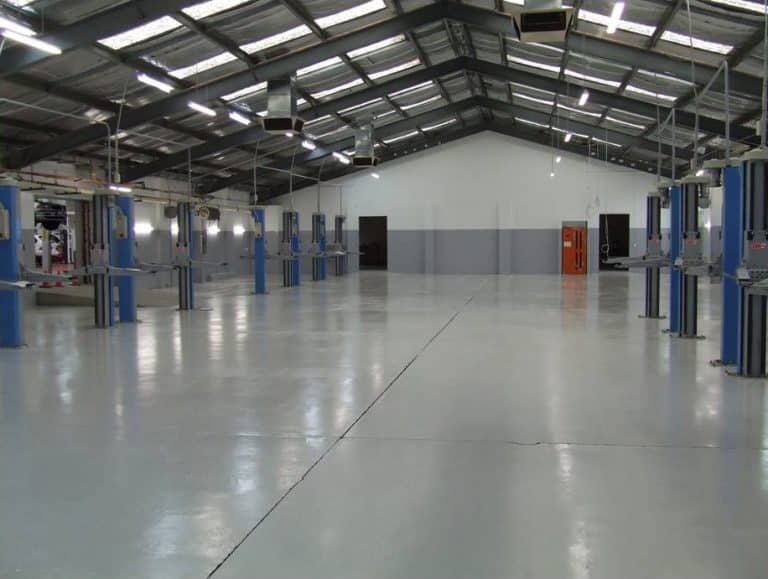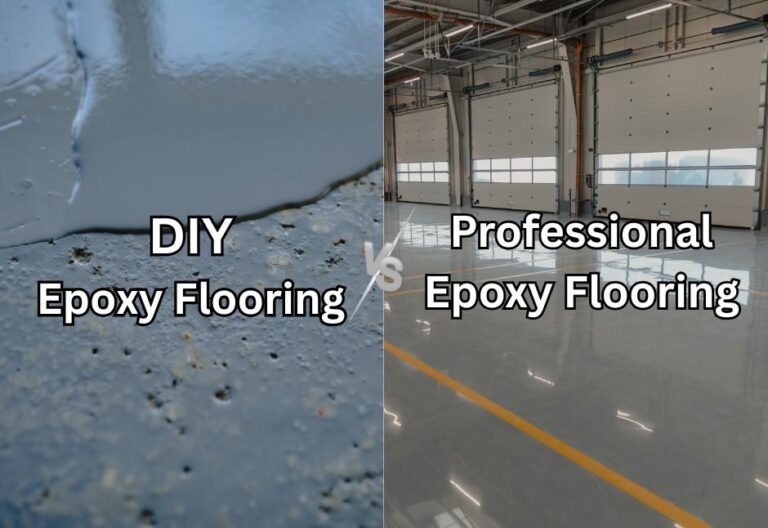What Is Epoxy Flooring
Flooring requires careful thought when building a new home or renovating an established commercial space. It’s usually the first thing people notice, setting the tone for the rest of the area. Plus, you want it to be durable enough to withstand wear and tear over time. So picking the right material is key.
With the myriad of options available, it can be confusing for someone (especially a mate unfamiliar with construction or civil engineering) to choose the right type of flooring. If you have a concrete floor and are looking for new options, epoxy might work well for you.
But what exactly is epoxy, and how can it help? Here is an introduction to epoxy floors with all the details about the types of this flooring and its benefits compared to other kinds of floors.
What is Epoxy Flooring?
Similar to epoxy glue that you may use in your school or office, epoxy combines hardeners and resins that create a polymer plastic layer. The coating may then be adhered to the intended surface. You may build on top of it by adding more layers for extra benefits. For example, you can have a strong centre section that gives the flooring strength while another insulating layer on top makes it dust and water-resistant.
A significant advantage of is that you can draw it into thin layers to serve as a coating. In commercial terms, an epoxy layer of 2 millimetres (1/16 inch) thick constitutes proper flooring. Anything less than that is often categorised as an epoxy coating. So, even if you already have flooring, you can use an epoxy coating to enhance its properties.
Epoxy Benefits
With its unique design, this type of flooring brings plenty of advantages to the board you can wield in your home or commercial space. A few notable ones include the following.
- Aesthetics: It can be used to create a seamlessly easy-to-clean floor surface that is also customisable with a wide range of colours, textures (glossy, satin, or matte), and designs. You can add coloured microchips to create alluring LED designs or metallic additives for a unique finish.
- Maintenance: Since the epoxy layers have exceptional insulating properties, the concrete substrate is protected from chemicals, dirt, liquids, and other contaminants. That makes it simple to clean the flooring; use a scrubber or a standard mop with a general-purpose cleaner to clean them. There is no need for waxing or buffing.
- Durability: Epoxy floors are subjected to various conditions, from ordinary foot traffic in a house to trucks and forklifts in a warehouse. Due to its chemical resistance and high abrasion, epoxy can meet the demands of most industrial producers. It can even handle the strains caused by big manufacturing equipment and concentrated loads over a small area.
- Safety: One of the lesser-known advantages is its ability to include a non-slip profile. You can do that by broadcasting sand onto the wet body coat during application. It is a crucial facet for commercial or industrial spaces where the safety of on-site personnel remains a primary concern. It can even help prevent domestic accidents that involve slippery floors.
- Green Credentials: Unlike other flooring options like laminates and luxury vinyl, epoxy is formulated to be solvent-free, containing low quantities of VOCs (Volatile Organic Compounds). Therefore, it does not present environmental hazards.
Applications
Thanks to its broad range of benefits, epoxy is suitable for various applications. Some of them are:
- Mechanical spaces, garages, warehouses, and factory floors
- Gyms, stadiums, and athletic academies
- Restaurants and commercial kitchens
- Showrooms, community centres, and other places that hold public exhibits
- Classrooms, offices, hotel lobbies, and cafeterias
- Chemical laboratories and similar areas that work with hazardous materials
Types of Epoxy Floors
It is available in different types, each catering to a specific application and scenario. Some of the most prominent ones include the following.
Self-Levelling Flooring
You can lay it over an old, new, or damaged concrete substrate. It has superior endurance and a beautiful, polished look that is much easier to keep than tile or vinyl flooring. You may put a lot of strain on it and have it automatically adjust itself by redistributing the pressure among the various layers. It’s ideal for commercial spaces such as warehouses, showrooms, commercial kitchens, shopping malls, etc.
Quartz-Filled Flooring
Adding stained quartz grains among the epoxy layers increases friction as they come in contact with fabrics or other materials. With quartz, the epoxy layers gain a rustic look and make the flooring perfect for areas where you need some extra grip. That’s why quartz-filled flooring is easy to spot in sports stadiums, schools, offices, home kitchens, and restrooms – to name a few.
Epoxy Mortar Flooring
Epoxy mortar flooring is excellent for workplaces that need floors that can withstand serious impacts without sustaining too much damage. To improve its strength and make it more durable, it combines solid epoxy resins with graded or quartz sand. Epoxy mortar flooring is ideal for manufacturing facilities, chemical laboratories, restaurants, warehouses, and automobile workshops because it is resistant to chemical reactions that otherwise deteriorate or wear other floorings. It is also perfect for industrial plants, chemical labs, restaurants, and warehouses.
Epoxy Flake Flooring
The flooring with coloured flakes is a low-maintenance option that few other flooring types can compete with in terms of both beauty and durability. The flakes are dry chips of paint, metal, or vinyl inset into the top resin layer. This makes replacing just the top layer simpler than retiling the entire floor. Epoxy floors are ideal for showrooms, living rooms, clinics, and similar environments.
Anti-Static Flooring
When hazardous electrostatic discharge (ESD) is present, you need to install anti-static flooring for the safety of those occupying the space. This type of flooring contains conductive compounds that will dissipate any charges on the surface, and it can even provide grounding if your facility doesn’t have access to soft ground. Some common scenarios where this kind of flooring would be applied include flammable material storage, chemical plants, electronic assembly lines, etc.
How Much Do Epoxy Floors Cost?
Material supply and installation cost considerations can vary depending on size, design, layout, and type of floor. Total lifecycle costs are usually lower than other flooring variants due to hassle-free maintenance, high durability, and effortless cleaning cycles.
It is best to contact a professional who can give you a detailed bill of service and help save on repairs with a robust maintenance plan.
Choosing the Right Flooring For You
It gives you endless options for your flooring type. The only danger is getting lost in options and not knowing which one to choose. To make things easier on yourself, here are a few key factors you can use to guide your decision.
Area of Installation
Size is not the only aspect you should consider when it comes to environmental factors and your flooring. You also need to think about how much stress will be put on the floor, like chemical spills or high-impact situations. Epoxy layers are especially prone to UV damage, so if your area sees a lot of sunlight, you should consider adding a protective coating.
Colour and Other Aesthetics
Different types provide different colour options and textures. Therefore, the one you choose will determine the aesthetics of the flooring and other items around the area. You should go with epoxy mortar flooring if you prefer strength. However, keep in mind that it’s not easy to paint over. If you’re someone who replaces the paint on the surfaces regularly, it helps to use another coating or choose a different flooring entirely.
High-Quality Installation Service
If you don’t know how to apply a resin floor system properly, it could result in delamination. In layman’s terms, this means the coating will chip and peel. Also, before any type of coating can be used on the substrate (floor), it needs to be prepared correctly – something that is best completed by a professional Flooring Applicator. It is a critical component that ensures you get quality flooring that suits your needs.
Installation of your new flooring is a delicate process that requires both expertise and precision. Therefore, it is essential that you use experienced applicators. The installation time can also vary depending on the thickness of the flooring system and the size of the project, so be sure to plan your schedule accordingly.
Short Summary
In a nutshell, epoxy grants you plenty of options with little stress on maintaining it. It is suitable for most situations and lets you get creative, giving you the precise flooring you imagined for any space. We hope this guide helped you obtain an informative insight into what epoxy is. Still, if you have any doubts or wish to book a service, feel free to use the comments section below.

